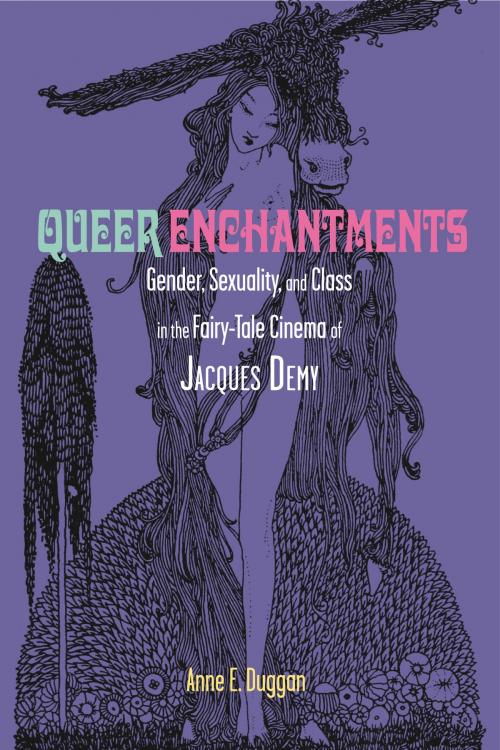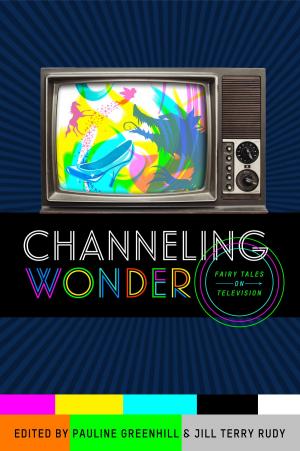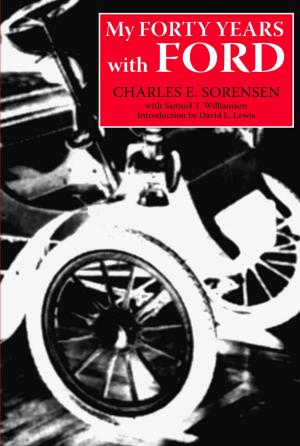Queer Enchantments
Gender, Sexuality, and Class in the Fairy-Tale Cinema of Jacques Demy
Nonfiction, Social & Cultural Studies, Social Science, Folklore & Mythology, Fiction & Literature, Literary Theory & Criticism| Author: | Anne E. Duggan | ISBN: | 9780814338544 |
| Publisher: | Wayne State University Press | Publication: | October 15, 2013 |
| Imprint: | Wayne State University Press | Language: | English |
| Author: | Anne E. Duggan |
| ISBN: | 9780814338544 |
| Publisher: | Wayne State University Press |
| Publication: | October 15, 2013 |
| Imprint: | Wayne State University Press |
| Language: | English |
To the uninitiated, the films of French New Wave director Jacques Demy can seem strange and even laughable, with their gaudy color schemes and sung dialogue. Yet since the late 1990s, a generation of queer filmmakers in France have found new inspiration in Demy's cinema. In this volume, author Anne E. Duggan examines Jacques Demy's queer sensibility in connection with another understudied characteristic of his oeuvre: his recurrent use of the fairy tale. In Queer Enchantments: Gender, Sexuality, and Class in the Fairy-Tale Cinema of Jacques Demy, Duggan demonstrates that Demy uses fairy-tale devices to explore and expand the identity categories of his characters, while he broadens the possibilities of the genre of the fairy tale through his cinematic revisions. In each chapter, Duggan examines how Demy strategically unfolds, challenges, and teases out the subversive qualities of fairy-tale paradigms. In chapter 1, Duggan reads Demy's Lola and The Umbrellas of Cherbourg through the lens of "Cinderella" and "Sleeping Beauty," while in chapter 2, she explores Demy's revision of Charles Perrault's "Donkey Skin" from the particular angle of gay aesthetics. In chapter 3, Duggan situates Demy's rendition of The Pied Piper in relation to a specifically Franco-American tradition of the legend, which thus far has not received critical attention. Finally, in Chapter 4, she examines the ways in which Demy's Lady Oscar represents the undoing of the figure of the maiden warrior. An epilogue reads Demy's fairy-tale cinema as exemplary of the postmodern tale. Duggan shows that Demy's cinema heightens the inherent tensions and troubles that were already present in fairy-tale texts and uses them to illustrate both the constraints and utopian possibilities of the fairy tale. Both film and fairy-tale studies scholars will enjoy Duggan's fresh look at the distinctive cinema of Jacques Demy.
To the uninitiated, the films of French New Wave director Jacques Demy can seem strange and even laughable, with their gaudy color schemes and sung dialogue. Yet since the late 1990s, a generation of queer filmmakers in France have found new inspiration in Demy's cinema. In this volume, author Anne E. Duggan examines Jacques Demy's queer sensibility in connection with another understudied characteristic of his oeuvre: his recurrent use of the fairy tale. In Queer Enchantments: Gender, Sexuality, and Class in the Fairy-Tale Cinema of Jacques Demy, Duggan demonstrates that Demy uses fairy-tale devices to explore and expand the identity categories of his characters, while he broadens the possibilities of the genre of the fairy tale through his cinematic revisions. In each chapter, Duggan examines how Demy strategically unfolds, challenges, and teases out the subversive qualities of fairy-tale paradigms. In chapter 1, Duggan reads Demy's Lola and The Umbrellas of Cherbourg through the lens of "Cinderella" and "Sleeping Beauty," while in chapter 2, she explores Demy's revision of Charles Perrault's "Donkey Skin" from the particular angle of gay aesthetics. In chapter 3, Duggan situates Demy's rendition of The Pied Piper in relation to a specifically Franco-American tradition of the legend, which thus far has not received critical attention. Finally, in Chapter 4, she examines the ways in which Demy's Lady Oscar represents the undoing of the figure of the maiden warrior. An epilogue reads Demy's fairy-tale cinema as exemplary of the postmodern tale. Duggan shows that Demy's cinema heightens the inherent tensions and troubles that were already present in fairy-tale texts and uses them to illustrate both the constraints and utopian possibilities of the fairy tale. Both film and fairy-tale studies scholars will enjoy Duggan's fresh look at the distinctive cinema of Jacques Demy.















